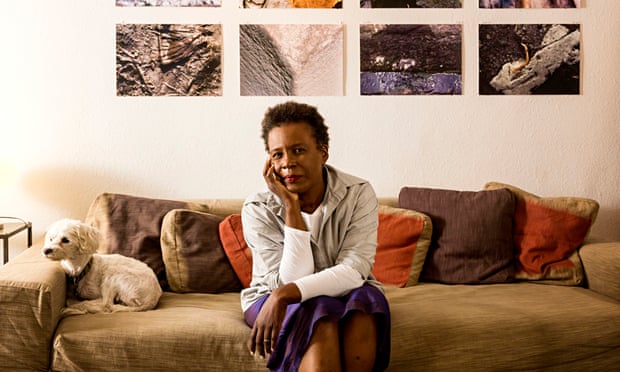Claudia Rankine’s collection of tense lyric essays Citizen this week won the Forward prize for best collection. The book recounts both quotidian racist “microaggressions” and internationally reported police brutality and violence targeting black Americans. I teach a course on women’s writing, and we read Audre Lorde, bell hooks, Adrienne Rich, and CD Wright’s One With Others, but it is Citizen that sticks with my students.
I’ve long admired Rankine’s work as a poet and anthologist. Her innovation of form – extending a tradition of prose poetry into visual and textual collage – is a challenge to any poetic avant garde (on either side of the Atlantic) that believes so-called identity politics is incompatible with aesthetic experimentation. Her 2004 book, Don’t Let Me Be Lonely, also comprises lyric essays which, like those in Citizen, paint a grim but realistic picture of post-9/11 America.
What Rankine uncovers is a poetic truth beyond facts, one that makes space for outrage – and for grief. It haunts me still, as it did when I was first drawn repeatedly into the second-person “you” throughout Citizen. I was reminded of crossing a bridge at night in York many years ago when a group of young white teenagers hissed “I can see you, Paki”.
It is painful to be seen; it is painful not to be seen. Rankine writes “there exists the medical term – John Henryism – for people exposed to stresses stemming from racism. They achieve themselves to death trying to dodge the buildup of erasure.” In Britain, we don’t talk about race and poetry enough. Citizen gives me hope.
I’ve long admired Rankine’s work as a poet and anthologist. Her innovation of form – extending a tradition of prose poetry into visual and textual collage – is a challenge to any poetic avant garde (on either side of the Atlantic) that believes so-called identity politics is incompatible with aesthetic experimentation. Her 2004 book, Don’t Let Me Be Lonely, also comprises lyric essays which, like those in Citizen, paint a grim but realistic picture of post-9/11 America.
What Rankine uncovers is a poetic truth beyond facts, one that makes space for outrage – and for grief. It haunts me still, as it did when I was first drawn repeatedly into the second-person “you” throughout Citizen. I was reminded of crossing a bridge at night in York many years ago when a group of young white teenagers hissed “I can see you, Paki”.
It is painful to be seen; it is painful not to be seen. Rankine writes “there exists the medical term – John Henryism – for people exposed to stresses stemming from racism. They achieve themselves to death trying to dodge the buildup of erasure.” In Britain, we don’t talk about race and poetry enough. Citizen gives me hope.

No comments:
Post a Comment